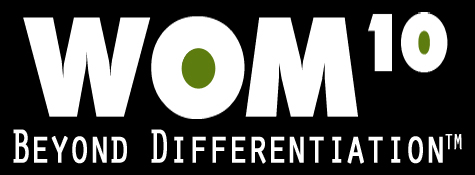The other day, I was interviewing a group of people from a customer of our client. We routinely ask about Promises our client has made, and whether keep those Promises are kept in the course of their relationship – it’s part of our approach. And an interesting question came up that I thought was compelling enough to share and discuss further. He asked:
“What is the difference between a “Commitment” and a “Promise” in your mind?”
Being the good consultant, I turned the question back on them, with a subtle difference: “Well, what comes into your mind when you hear both the words Commitment and Promises?” I thought their answer was spot on and something that really made me sit back and think. One of the group said,
“I view a commitment as something I said I would do but if I had to break it, I would feel bad but not terrible and I would figure out a way to make it up to them. However, if I made someone a Promise to someone and broke that Promise, I feel my “character” would be tarnished a bit.”
This is very telling and compelling to me. First of all, I completely agree. A Promise has both more “emotion” associated with it and it speaks to someone’s “character” all in the same sentence. So I did a bit of unofficial research on this and asked some more people what they thought. You guessed it, they all agreed: breaking a Promise is a character issue and breaking a commitment is a business or social issue – one of which is far more acceptable and understandable than the other.
This leads me to some interesting articles by a very well known and successful educator and author, Donald Sull. He has written numerous articles on commitment and the organization. Promise-Based Management: The Essence of Execution is one of his more recent articles. I whole-heartedly support what he is saying about how commitment is necessary in the organization and how without it you basically get people doing what they want as individuals and not for the good of the company, the customer, their fellow employees or themselves – I couldn’t agree more. However…
Let me challenge this thinking a bit – I don’t think Mr. Sull quite went far enough. I believe that making and keeping Promises strikes at the very core of human nature. Promises – we are programmed to understand them, and (usually) raised to believe in and do the right thing. Numerous studies have been done psychologically that say the majority of people want to do “the right thing” and “do what is right.” It is the exception that looks to take advantage of others and situations. This says to me that people have “character” and this is first and foremost what they want to demonstrate.
So, if this is the case, why would we not want to capitalize and leverage what people (employees, management, executives, etc.) truly “want to do” that speaks to their higher character – to make and keep their PROMISES. How many articles have you read recently where it was clear that management and/or employees didn’t keep their Promises and did something “wrong” that hurt the company and its employees? They abound. This is because people are being asked, or told, to go against their human nature and act in ways inconsistent with what they truly believe in. This friction creates confusion, dissension, and even rebellion. Employees, like customers, want to have a consistent, positive experience that supports their character – that is just human nature.
So, why should anyone put up with an organization that asks employees to go against our character and beliefs by forcing them to make Promises they can’t keep, and somehow look the other way? Why do we tolerate Organizations that don’t live up to their Promises? Like Donald Sull discusses in many of his articles, commitment is something that is really needed in organizations today to make them function well.
Why not take it to an even higher level? Since people generally have good character and want to work with companies that do, what if we could move beyond simple commitments to Promises? What if we could build “Character Organizations” instead? We believe this is easier than people think and the rewards are significant. We, at WOM10 exist to help organizations be Promise-Driven because we believe character should count and should be used to its fullest strength at work as well as at home.
